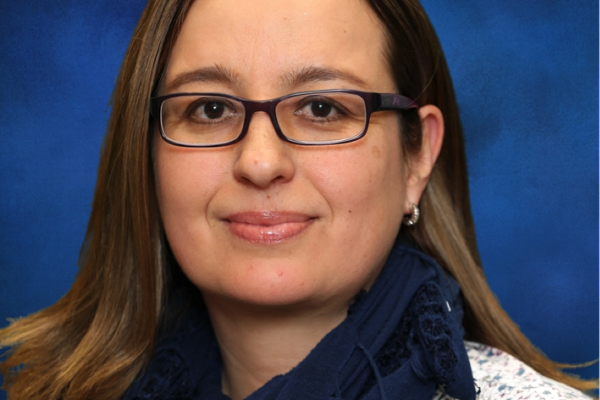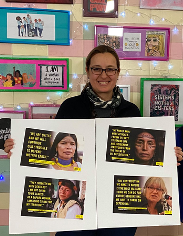
Establishing connections through the QES-Advanced Scholars program
One researcher shares the experience she gained conducting research with Indigenous groups in Canada and Ecuador.
By Sparrow McGowan for University Affairs
In early 2020, Paulina Larreategui was planning to get to work after receiving funding from the Queen Elizabeth Scholarship Advanced Scholars program. “I wanted to do research in a different way, to be close to a community,” she said. But then the pandemic hit. “I went straight into lockdown. It felt like nothing was going to be possible that year.”
Ms. Larreategui, who has been working towards her PhD at the Johnson Shoyama Graduate School of Public Policy at the University of Regina since 2018, is doing research that focuses on Indigenous actions in response to climate change. “My main idea was to compare one climate action or one environmental action from one community in Ecuador and one from Canada.” She is also currently on leave from her lecturer position with the school of sociology at the Pontificia Universidad Catolica del Ecuador, a university based in Quito, Ecuador. She received her scholarship to do her research through the QES-Advanced Scholars program, which is administered by a partnership between the Rideau Hall Foundation, Community Foundations of Canada, Universities Canada (the publisher of University Affairs) and a group of Canadian universities.
Already having an established connection for her research in Ecuador’s Sarayaku community, she turned her attention to finding a community in Canada. “Some people were afraid or were not confident about what I was going to do. Being [an unknown] researcher and trying to talk about Indigenous initiatives could be risky for people here, and I wanted to respect that,” said Ms. Larreategui, noting there was also the added challenge of not being able to visit communities in person. “It took me a while, but I finally found a community that wanted to share their experience,” Ms. Larreategui said. She was able to connect with a representative from the Kitchenuhmaykoosib Inninuwug First Nation in Ontario.
She attributes being able to navigate her research in the midst of the pandemic to the connections the scholarship helped her make, like the third-party partner she worked with. “One of the biggest outcomes from the research was being able to work with Amnesty International. I have not only supported the Regina group […] but because of COVID we are connected with other groups [virtually].”
The themes of connection and knowledge sharing run through much of Ms. Larreategui’s research and activities since receiving the scholarship. “I have been embedded in some classes [in Ecuador] to share some of these ideas of how the Indigenous actions are connected, north and south. I share with them all the struggles that Indigenous peoples are facing here [in Canada] because that’s something that you don’t hear back home.” She is also pushing for a new course at her university in Ecuador that will examine how Indigenous environment leaders are connected in the Americas and how non-Indigenous people can support their initiatives.
Similarly, students at the U of R will benefit from Ms. Larreategui’s research. She said they are looking into an international course that connects students from U of R with students from other universities, including her own in Ecuador. “I will be the link between those two universities. It will be great if we can do that.” She will also be teaching a course at U of R’s Lifelong Learning Centre about Indigenous climate actions in the Americas.
Ms. Larreategui’s experience exemplifies the goals of the QES-AS program. By providing enriched academic, professional and cross-cultural experiences and facilitating local and global community engagement, the program aims to develop the next generation of leaders and community builders while also strengthening the research capacity of universities and research institutes in low and middle income countries. Since 2015, over 2,000 scholars have been funded through 106 projects in 73 countries. The program is currently wrapping up a four-year longitudinal study, funded by the International Development Research Centre, to collect evidence on international scholarship programming as a mechanism for social change, and results are expected later in 2022.
For Ms. Larreategui, the insights and connections gained through her research have impacted her deeply. “Having this scholarship was amazing for me because it opened the door to learn more about my own community back home, in terms of climate change, environmental actions, Indigenous initiatives and Indigenous knowledge. This scholarship has shaped the way that I see things now.”

